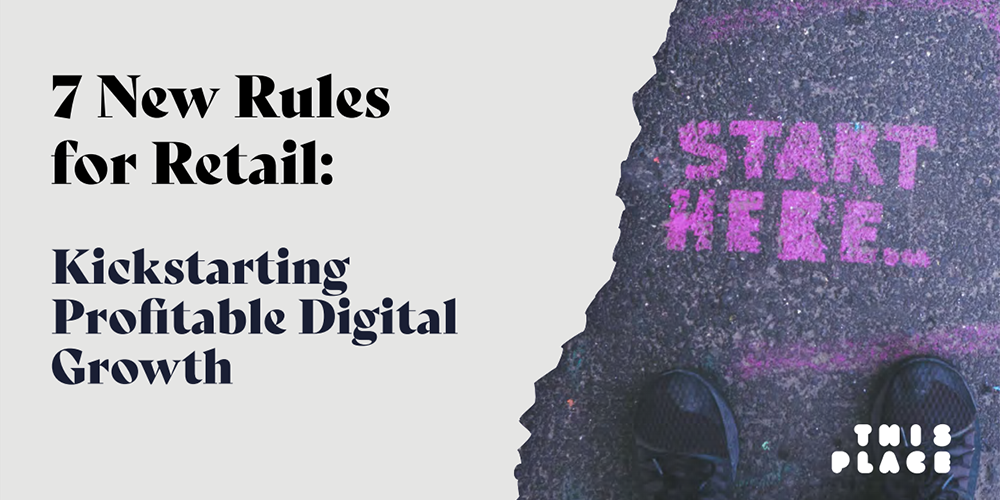Amongst the BIMA membership you’ll find thought leaders in every facet of digital. So when they produce a new report it’s always worth reading. Read them here.
_(1).png)
Despite a cost-of-living crisis, rampant inflation and news of sweeping tech layoffs, many businesses are still struggling to both recruit and retain employees. Whilst much noise has been made about the talent shortage, the retention of current employees often gets forgotten about in the mad dash to hire new talent. But this is a huge oversight.


For the past couple of years, the world of work has been in constant flux. When the COVID-19 pandemic hit in March 2020, we had to switch how we worked overnight. Home offices were erected on kitchen tables, in the corners of cramped bedrooms, and everywhere in between. And for a large portion of the following year and a half, that is how things remained.

.png)
Leading up to the Covid-19 pandemic, the adoption of emerging digital technologies in the healthcare sector was muted. But the challenge of delivering private healthcare during a time of social distancing and remote working led to the rapid implementation of new digital tools, ecosystems and approaches to every level of care delivery.


Marketing planning and execution management are business practices and processes that are foundational to achieving marketing results, whether your desired outcomes are revenue,
ROI, or as specific as channel performance. In this research, Yard identified the current state of marketing planning and how marketers can prepare to succeed in 2022.


We surveyed and spoke with over 500 digital leaders to understand the impact of Covid-19 on their CX strategies. We went on to explore changing attitudes to risk, investment, commercial modelling and measurement, programme priorities and business barriers. Â


London is a city that is always innovating and reinventing itself – much like the capital's burgeoning fintech sector.


Are you starting to see the signs that your business is outgrowing your current website? Tracking customer activity on the site could be a challenge, changing content is taking days instead of minutes, and personalisation seems like an impossible dream – not to mention clunky integrations and messy code behind the scenes.


Digital Transformation can mean many things for many different businesses. But there will be common threads for companies running across diverse sectors.


This guide is designed to be consumed by anyone with an interest in making sense of data and accelerating its use.


PRELOADED is a BAFTA-winning games studio working in XR, connected play and geospatial technologies.
Find out how the immersive landscape is reshaping the possibility space for kids' play, in PRELOADED's latest New Play Space report.Â

.png)
The Covid-19 pandemic has caused a massive acceleration in the quest for digital competency, and companies are realizing that they need to move rapidly into a digital-first model â€' or risk getting left behind in the dust.


The industry's largest-ever survey of CMS users reveals which technology drives greater business results.


Many companies have huge, dusty museums of software, solutions, tools, disparate systems and siloed content. Without a map or curation system, it's easy to get lost long before you find the item in the collection that you're looking for.


In this paper, we'll highlight the areas where modern stacks add value through efficiency, cost savings and maximizing the value of tech investments.


The way people experience the web has radically shifted. Today's websites are no longer simply a collection of published pages â€' they are full applications in their own right. The best websites are engaging, personalized digital experiences that are driven by data and enhanced by new technologies such as AI or machine learning.


The rise of the cloud has unleashed a new chapter of our digital era. New technologies are accelerating the pace of innovation, and new digital channels are continuing to serve increasing customer needs. Data privacy, localization and personalization in customer touchpoints have become even more critical for companies to compete in today's economy.


Digital transformation is how businesses are adapting to the impact of rapidly emerging technology.


How the next generation of agile content management options can work for you.


2020 sets the stage for a decade of unprecedented change
2020 saw the speed of change increase by factors no one could have expected back in January. Businesses pivoted literally from one day to the next. Organizations set aside hesitations and made bold decisions focusing on innovative technologies and strategies to respond to the crisis. Having done it all year to ensure survival, we expect to see businesses continue to move fast and implement decisions at lightning speed.


COVID-19 has brought about unprecedented change to everything we do. This extraordinary shared circumstance has fundamentally impacted how we go about our daily lives as individuals, and accelerated seismic shifts in the way businesses are run.
